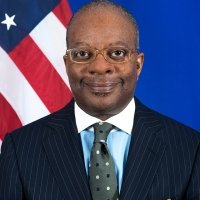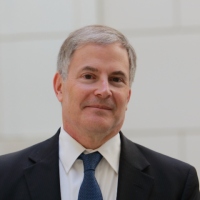Tenth Annual U.S.-Mexico Security Conference Part 1
From January to November 2021, 1.87 million crimes were committed in Mexico – about 560 more crimes per day than in 2020 – according to Mexico’s National Public Security System's Executive Secretariat. The 2021 delinquency rate represents a 2% increase from 2018 levels, a 2% decrease from 2019 levels, and a 10.9% increase from 2020 levels (when pandemic-related lockdowns initially drove criminality levels down). These trends suggest that Mexico’s criminal momentum has subsided – though it has not reversed course – under the López Obrador Administration. While overall crime rates have plateaued over the past three years, eleven of the fifteen federal crime categories suffered surges between 2019 (the last pre-pandemic year) and 2021. While kidnapping for ransom decreased by 50% and homicide by 4% in that timespan, corruption of minors rose by 16%, human trafficking 10%, human trafficking of minors 7%, extortion 3%, and other crimes with intent to cause bodily harm 47%. As well, a record 922 women were victims of femicide in 2021, representing a 5% increase from 2019, and abduction with the intent of sexual assault grew by 22%, demonstrating an increase in gender-based violence.
Despite this stagnation, Mexico continues to expand its Armed Forces, including by injecting resources into the growing National Guard. Aside from conducting security operations, including drug seizures and apprehensions, the military now manages disaster relief efforts, distributes medications, and oversees major infrastructure projects nationwide. Such expansions in the military’s size and duties call into question its institutional and technical capacity to prevent and curtail – not just respond – to violence nationwide. As drug trafficking organizations have reinvigorated their overt displays of violence – from shooting rampages in Culiacán and around Cancún to hanging mutilated bodies from bridges in Zacatecas – the government has taken a reactive posture, surging troops in response to violence.
Although the security panorama on the ground may look bleak for 2022 – which has already tallied over 600 homicides – renewed bilateral commitments to address the Mexican crisis offer some room for optimism for both countries. In the United States, increasing fentanyl-related deaths place a premium on addressing this issue collaboratively and effectively. Meanwhile, Mexico could benefit from an overall reduction in violence, criminality, and disregard for the rule of law. To that end, the Mexican government has mobilized to curb illicit weapons flows from the U.S., which sustain and facilitate violence in Mexico.
Selected Quotes
Ambassador Todd Robinson
“The security issues we face have direct and painful consequences for citizens of both countries. According to the CDC, more than 100,000 people in the United States died of Drug Overdoses during June 20th to the 21st. This represents a 20% increase over the previous 12-month period, and it is the highest total ever recorded. These are real people, with real lives, and real families.”
“On October 8th, I joined Secretary of State, Blinken, Secretary of Homeland Security, Mayorkas, Attorney General, Garland, and Deputy Secretary of the Treasury, Adeyemo, at the launch of our high-level security dialogue with Mexico. Our two countries established a common understanding of our shared threats and priorities and inaugurated the new Bicentennial Framework for security, public health, and safe communities. It’s a historic declaration of our alliance and our vision for a safer and more secure home for people on both sides of the border."
“The reality is that the nearly two billion dollars in trade that crosses our border is critical to the livelihoods and prosperity of millions of our citizens and we need to think of our border as a shared resource. With advances in imagery scanning and other best practices, there’s ample opportunity for both countries to share more information and resources, and to jointly assess suspicious activity in ways that reduce wait times, improve security, combat corruption, and boost trade.”
Georgina Barquet
“In the spirit of renovating mutual trust and respect and under equal circumstances, Mexico and the United States acknowledged the need to renew the bilateral security cooperation.”
“These mechanisms set an example of how cooperation needs to adapt and adjust to the ever-changing nature of crime and the drug phenomenon.”
“If we learned one thing from the COVID-19 pandemic, it’s that criminal organizations change and adapt at a swift pace. For this reason, Mexico and the United States must remain at the forefront of the dynamic and evolving nature of transnational criminal organizations that continue to develop new technologies and tactics.”
“It is important to underscore that under the Bicentennial Framework we have institutionalized our cooperation ever further, proving that our countries seek to enter a new era of collaboration that responds to the current global environment by being dynamic and proactive.”
Craig Deare
“I’m not suggesting for a moment that the Mexican military is seeking greater political power; they have not sought—to the best of my knowledge—these increased roles. Indeed, if you talk to Mexican military officers below the secretary level but also at the general office level as well as colonels and majors, they are not super happy with doing this and had they wanted to join a USAID equivalent then they wouldn’t have joined the military.”
“The issue is not one of legality. I look at this issue from a civil-military relations lens and the issue really became one of legitimacy—legitimacy both internally and externally… Cecilia mentioned this in her comments as well, and I have a similar side to Inigo’s in terms of how the public supports this. This is despite the fact that AMLO had promised to return the military to the barracks.”
“The tragedy here is… now four successive Presidents have made the case of needing to improve the civilian police forces at the federal, state, and municipal level, and they have all failed. It is though they have given up and in the case with AMLO, who promised to send the military to the barracks… if he says that ‘I [he] am using the federal police force because the military is corrupt,’ then what are we to do?”
Inigo Guevara
“New technology developments that we see around this time with the Mexican military, they are really inducting unmanned technology and that really helps channel it down as well as create a link to local industries. We have seen during these past ten years Mexico’s aerospace industries really flourish to become probably the tenth largest aerospace supply in the world. While not a single aircraft really takes off from Mexico, Mexico becomes a tier two or tier three supplier, which means a large amount of jobs—high paying jobs—are now well equipped within Mexico.”
“The Mexican military set up an 800-troop force in the North of Mexico to fight illegal fuel smuggling coming in from the U.S. into Mexico and they managed to secure somewhere in the region of 20 million liters, the equivalent to around 60 million U.S. dollars over the past year or so. Another one of the roles which is new to the military under the AMLO administration—not just to the national guard but also the army—was to be deployed as a border force.”
“We have additional requirements for the military to distribute textbooks in some of the most difficult states of Mexico, some of the most violent states in Mexico, and an additional mission for the army’s core of engineers to build a network of almost 3,000 of these national welfare banks, which are government backed banks designed to provide some of Mexico’s poorest areas with a banking system.”
Celina Realuyo
“We’ve seen kind of this persistent theme of the reliance on the military, due to—if anything else—the absence or the inadequacy of civilian police authorities. We have seen this throughout the time.”
“I have looked at the expansion of the role of the military in combatting transnational organized crime so they become a defense force to an internal security force, not just in Mexico but throughout Latin America, and through those interviews we’ve seen… many military officers were concerned that they weren’t trained to be police, they didn’t sign up to be police… and then more importantly, the fear that their image as one of the most prized institutions in society would be tarnished by accusations. As we have seen, there are proven cases of abuse of power and human rights.”
Cecilia Farfan-Mendez
“What’s very interesting is that between the survey of the general population and those that we call experts, there is a very clear divide of whether or not the Armed Forces should be conducting these tests and this is of course a debate that we have seen play out in the public arena and where we see human rights organizations and scholars (such as myself) really question whether or not the Navy should be cleaning seaweed, for example from the Caribbean, or building walls for banks. Interestingly, from the general population, what we find is they have very high levels of trust for this expanded role, which again I think should make us think how does this translate into the Armed Forces as political actors as we continue to study these?”
Speakers

Introduction

Moderator

Former Career Ambassador to Afghanistan, Argentina, and Mexico; Distinguished Diplomat in Residence, School of International Service, American University
Panelists



Hosted By

Mexico Institute
The Mexico Institute seeks to improve understanding, communication, and cooperation between Mexico and the United States by promoting original research, encouraging public discussion, and proposing policy options for enhancing the bilateral relationship. A binational Advisory Board, chaired by Luis Téllez and Earl Anthony Wayne, oversees the work of the Mexico Institute. Read more
